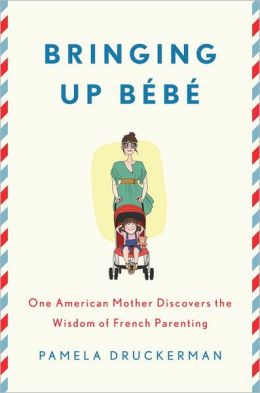strategic disappointment
since peter had a longer than normal long weekend over the july 4th holiday i didn't do much housework this past week. instead, i filled my time with reading. i read this book for the second time, and the main ideas in it have been rolling around in my head ever since.
there are a few ideas in it that, like the author, i feel are a bit of a stretch. however, the vast majority of the ideas are ones that i'd like to implement.
 |
| {via barnes & noble} |
there are a few ideas in it that, like the author, i feel are a bit of a stretch. however, the vast majority of the ideas are ones that i'd like to implement.
prior to this morning i knew that many of these ideas fit under the same umbrella, but i didn't have a good label for said umbrella. but, seeing how God is pretty timely, this morning's sermon gave me a perfect label. it turns out that much of the wisdom of french parenting comes straight from the bible. [shocking, i know since all truth is God's truth.]
strategic disappointment
the biggest overarching idea in this book can be summed up in those two words. strategic. disappointment.
it talks about things like: kids learning how to be frustrated, learning that the universe does not revolve around them, learning how to wait, learning how to respect others and respect authority, and learning the importance of intrinsic motivation. all of these things are good and important. they also all come with a difficult side to them. they are not easy lessons to learn. they take growth, and maturity, and strategic disappointment.
when i step outside of the thousands of tidbits, and multiple philosophies i've heard about parenting, it really comes down to this: i want what's best for my son. in my opinion, what's best for my son means that his character comes before his intellect, before his achievements, before his accolades. his character will determine what kind of life he leads much more so than any of those other things. and his character is determined in large part on how he handles himself when he does not get what he wants. his character also determines how he decides what he wants, whom he trusts, and where he finds his value as a person.
maturing is hard. growth hurts. we have the term "growing pains" for a reason. but we have all seen what can happen when growth doesn't happen. when we don't require maturity.
i don't want my long-term hopes for my son to get lost by my glossing over the short-term hardships, and doing everything i can to squelch the difficult situations.
and then i have to turn and think about my own life. my own self. i certainly haven't "arrived." i'm still being taught about strategic disappointment whether i like it or not.
the years we spent struggling with infertility were nothing if not strategic disappointment and a lesson in maturity. it definitely revealed areas of my heart and my character that were [and are] less than stellar.
my soul was not content with the giver of all gifts. i wanted the gifts themselves.
and too often, i still do. too often when i ask myself what i want most, and what i'm looking forward to the most, and where i'm putting the hope of and for my life, the answer is not in the only one who satisfies. it's in some thing. or some place. or some person. or some ideal.
our culture seems to practice constant discontentedness. it tells us that what we want is happiness. contentedness comes with happiness. and yet, it constantly tells us we need more. we need more, and should want more. and if we constantly want more we cannot be happy, we cannot be content.
no matter, it says. just get the next thing. believe the lie that one of these things, one of these times will make you happy and content.
our culture trains us to want the gifts and ignore the giver. and as a result we are reeling and striving for something new, something more, something that satisfies.
we have started to believe that elusive "happiness" is the end goal, and thus anything that doesn't seem good, is bad. so things that hurt or disappoint cannot be good, and cannot lead to happiness.
we don't want to have to work hard. sometimes, most times, in the thick of it, hard work sucks. sentimentally - in our inspirational quotes and other such aphorisms - we still believe that certain things are worth it in the end, but in recent history the likelihood of making it past the hard part to get to the "worth it" part has gotten so much less likely.
too often, i believe the lie. and at the end of the day, the lie always disappoints so much more, and hurts much more deeply than the truth.
and on that note i have to say that
right about now i'm more than a little thankful
that his mercies are new every morning.






Comments
Post a Comment